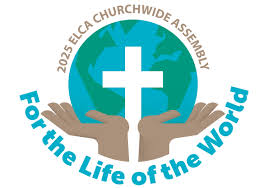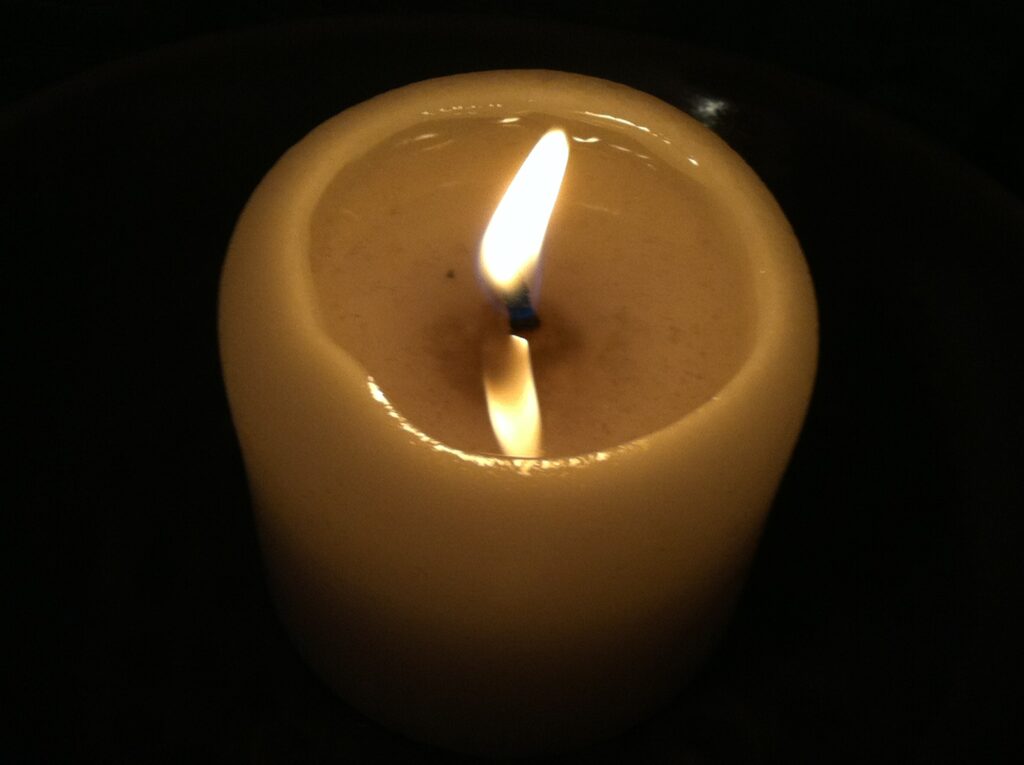ANSWERS TO A QUESTION

During the ELCA Churchwide Assembly this week, a colleague from seminary, Scott Johnson, who is now Bishop of the Nebraska Synod, posted a piece he had written back in February with a view toward the election of the next Presiding Bishop of the ELCA (one of the major agenda items of the assembly). In that piece he stated:
“The next presiding bishop of the ELCA will be charged with leading this church into an uncertain future … What will the impetus for being part of the ELCA when ‘we’ve always done it that way’ no longer suffices? We need a leader who can help us answer ‘Why Lutheran? Why ELCA?’ before asking any other question.”
I would never have been in the running for Presiding Bishop – and neither was Scott (my once upon a time editor). And now that a new Presiding Bishop has been elected, Yehiel Curry, the questions apply not to him alone. After all, the ELCA Presiding Bishop is in no way an equivalent of the Roman Catholic Pontiff, only for Lutherans in America. The Presiding Bishop makes no divine pronouncements and actually has limited influence on the church as a whole. However, the Presiding Bishop can encourage discussions and deliberation among the Conference of Bishops … and the bishops can foster conversations in their respective synods. Furthermore, I think Bishop Johnson’s question “Why Lutheran?” is appropriate for the whole church to be pondering in these times.
What follows are my brief, initial attempts to answer the question: Why Lutheran?

First … Lutheranism is formulated for theological humility that is badly needed these days. In the Lutheran tradition, it’s okay to be wrong. We are simultaneously both wholly redeemed saints of God in a state of perfection – and at the same time – flawed and failing sinners who continually fall short of the perfection of God’s glory. Being both holy and failing, we can never say with an absolute certainty “We have the correct theological formulation; if you do not agree with us or believe as we do, then you are badly misled and risking eternal punishment.” Plenty of voices all around us are claiming this very thing; we don’t – we can’t. Humility and lack of certainty can be a powerful counter church-cultural witness in our current American context.

Second … and we are still trying to reclaim this facet, but it is in our heritage … Luther’s Catechisms are centered on the concept of baptism as the entry point into a life of Christian discipleship – not some sort of eternal fire-and-life insurance. The concept of going to heaven for eternity after death (rather than to eternal punishment in hell) was not the primary point or central theme of salvation in much of Christian tradition down through the centuries. A generalized form of Christianity in America centered these themes, especially in the last half of the last century. During that same time frame, baptism among Lutherans (and quite likely other traditions that also practice infant baptism) became a generally expected ceremony for babies … more than just a naming rite … primarily a family tradition … often to placate a concerned grandparent. With the launch of the Lutheran Book of Worship in the late 1970s, efforts were made to recenter baptism as the starting point for a life of Christian discipleship. These efforts have had mixed results, but at least it’s a start. We need to – and can! – build on this.
The whole key to the Lutheran understanding of baptism and Christian living is in the fourth question about baptism in the Small Catechism:
What does baptism mean for daily living? (Or in the more traditional wording, What then is the significance of such a baptism?)
It signifies that the old person in us with all sins and evil desires is to be drowned and die through daily sorrow for sin and through repentance, and on the other hand that daily a new person is to come forth and rise up to live before God in righteousness and purity forever.

We fall down … we rise up; the old self-obsessed person dies a little more each day and the life of the risen Christ becomes more and more a part of us each day. In support of his explanation, Luther cited Romans Chapter 6. I have long maintained that if one understands what Luther wrote in explanation of that fourth question about baptism and what Paul is saying in Romans 6, that is all one needs to know to live a Christian life “Lutheran style”:
Do you not know that all who have been baptized into Christ Jesus were baptized into his death? Therefore we have been buried with him by baptism into death, so that, just as Christ was raised from the dead by the glory of God, so we too might walk in newness of life. (Romans 6:3-4, NRSV)
From there Paul goes on to explain how we, having died to sin, cannot go on living in it. This isn’t about a life of eternal bliss in a purely spiritual heaven after death. This is about living life right here, right now – living in the form of life that Jesus modeled. Luther called on Christians to be “little Christs to one another” … and to others as well. He rather famously explained that a Christian cobbler is one who makes good shoes – not shoes with little crosses on them. (Consider just how much in our culture gets labeled or branded as “Christian” just by slapping a cross on it somewhere.)

Third … and maybe most important for this day and time … We are the connection point to the most egregious abuse of the Christian faith when it is employed in support of nationalism. Yes, I’m referencing Nazi Germany. We Lutherans in America are the link to the Young Reformation … the Pastor’s Emergency League … the Barmen Declaration … the Confessing Church movements that sought to maintain authentic Christian faith and practice when the Nazi movement co-opted the state churches for its own purposes – contrary to the mission of God in the world. We have the writings of the leading voices from these movements in our seminary libraries (if not personal libraries). Their wisdom and experience can surely guide us in the living of these days when so many in our country, who claim to be Christians, proudly and loudly identify with the heresy of Chrisitan Nationalism. Drawing from our particular legacy of faith and tradition, we can be a corrective voice describing what authentic Christian faith and living practice actually is.
I think these are at least some places to start to answer the question “Why Lutheran?” … As for the other question, “Why ELCA?”, I do think we are going to have to drop the word Evangelical from our church name in the very near future.
